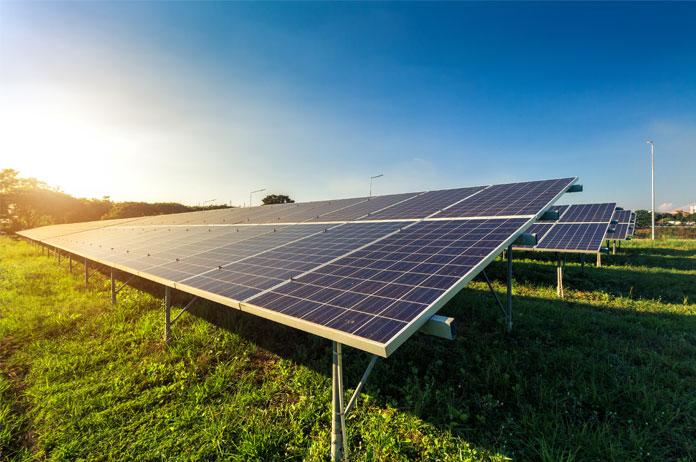Solar Project Launched In Kampong Speu

Global Purify Power (GPP), a joint venture behind $400 million worth of solar powered projects, started groundbreaking work on Friday with more than $10 million worth of investment in Kampong Speu province. It will be the first step for producing about 15 megawatts to supply the industrial zone.
Due to the high cost of electricity in rural Cambodia, there is a strong opportunity for solar power systems.
The GPP is a joint venture involving Cambodian, Thai and Laos investors, and has had a licence from the government to produce solar power since December 2015. The company plans to invest $400 million in solar projects to produce 225 megawatts or more for businesses, factories and other industrial zones in Kampong Speu, Kampong Chhnang and Takeo provinces.
Director-general of the Energy Ministry’s general department of energy Victor Jona, who presided over the groundbreaking ceremony, said on Friday that the company had just started its first investment, in Kampong Speu, since getting the licence. “We support the project, especially as it complies with the government policy of using renewable energy such as solar power to supply in our country,” he said. “Today [Friday] is the start of the company’s pilot project to construct a 15 megawatt solar power plant to supply clients at an industrial zone in Kampong Speu province.”
GPP is the second project of a solar power farm in Cambodia after the first one was launched recently in Svay Rieng province with 10 megawatts invested by Sunseap Asset (Cambodia), the local subsidiary of Singapore-based Sunseap International. Sunseap invested $12.5 million into the project and plans to sell the power to Electricite du Cambodge (EDC) to supply to the national grid. “In 2016, the Ministry of Mines and Energy, together with Electricite du Cambodge, had bid for a 10 megawatt project, which is being launched in Svay Rieng,” added Jona.
According to the Economic Research Institute for ASEAN and East Asia, in 2013 only 34 percent of Cambodian households had access to electricity, which is one of the lowest electrification rates in ASEAN. The current cost of electricity is high, ranging from $0.15 per kilowatt hour in Phnom Penh to $1 per kilowatt hour in rural areas. Due to the high cost of electricity in rural areas, there is an opportunity for solar home-based systems.
However, Jona said that GPP would have difficulties with their investment because they would have to find customers themselves to supply other businesses, factories and industrial zones while the state-owned EDC already covered 70 percent of the power supply nationwide. “GPP cannot sell to EDC because it already has contracts to buy electricity from hydro power and coal-powered plants,” he said.
The government has set a target for power coverage across the country. By 2020, the aim is to have power to all 14,168 villages in Cambodia. As of the end of June, the government provided power to 79 percent of the villages, according to Jona.